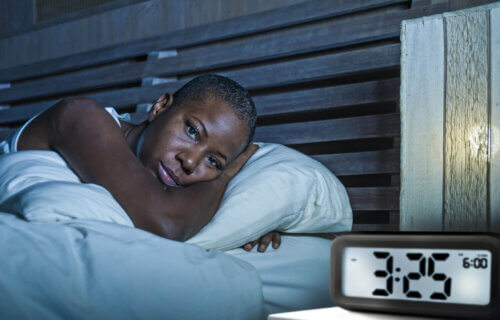TEMPE, Ariz. — Find yourself struggling to fall asleep and stay asleep more often during the pandemic? You’re far from alone. In fact, sleeping issues are burdening people around the world, with more than nearly six out of 10 people across the globe suffering from poor sleep during COVID, new research shows.
The study involving people from 79 countries around the globe reveals that 56.5 percent of people have experienced some kind of sleep disturbance in the pandemic. Almost two-thirds of those polled dealt with a “delayed sleep” pattern, which was associated with little change in sleep duration or time spent in bed, but a later bedtime and increased nightmares and naps.
The second most common sleep pattern change, experienced by one in five people, was the “sleep lost and fragmented” pattern. Scientists say these people went to bed later and had a shorter time in bed attempting to sleep – in essence, their sleep was restricted, lower in quality, and they were less likely to compensate for it with naps. Women are more likely to experience this disruption than men, results show.
Around one in 10 tended to be “sleep opportunists,” meaning they had significantly restricted sleep opportunities before the pandemic, but spent a lot more time in bed and had the longest sleep duration compared to any of the others. Despite the better sleep, those people also reported the greatest change in their daily routines, which was associated with a lower likelihood of being employed and greater family stress.
The least common sleep pattern was “dysregulated and distressed.” This was experienced by 5 percent of people surveyed. These individuals had the worst sleep deterioration along with more nightmares and naps, and had the worst insomnia symptoms.
“Overall, sleep disturbances were heightened, with 56.5 per cent of our sample reporting clinical levels of insomnia symptoms during the pandemic,” says Dr. Megan Petrov, an assistant professor in the College of Nursing and Health Innovation at Arizona State University, in a statement. “Sleep is an essential part of living, just like air, water and food. Your health and functioning are compromised when the quality of the air you breathe, the water you drink and the food you eat are poor. This is also the case if your sleep is poor quality and insufficient in quantity.”
The findings are published in the journal Sleep Health.
South West News Service writer William Janes contributed to this report.
